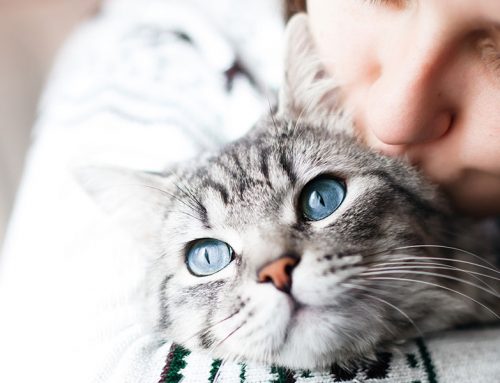Product after product for both pets and people claim to help stimulate the immune system for better health. A healthy immune system is very important; many infections and diseases can be prevented, or made better, by a healthy and active immune system . More is not always better though, for other diseases occur when the immune system is too strong.
The white blood cells and antibodies are the armies of the immune system, attacking invading bacteria, viruses and other organisms. The antibodies, and some white blood cells, recognize and attach to foreign invaders, directing the white blood cells to attack and destroy the bad germs. The antibodies are very specific; they need to target the causes of infection while avoiding the actual host’s own body.
If the immune system is not strong enough, foreign organisms can come and cause disease. Bacteria can cause kennel cough, viruses can cause parvo-virus, feline leukemia virus, or rabies, yeast can cause ear infections and fungus can lead to pneumonia, just to name a very few possible problems. Our pets, and our own, bodies are constantly being assaulted by foreign invaders determined to cause illness.
But like many things in nature, there must be moderation with the strength and power of the immune system; an overactive immune system causes problems as well. If the antibodies and white blood cells react to “normal” substances, such as pollens or proteins in food, it can lead to severe skin allergies or asthma in the lungs. An over-reaction to an insect sting can cause hives, facial swelling, or even anaphylaxis, where the throat swells shut.
Even worse is when the immune system becomes confused and begins to attack the dogs or cats own body parts. If the immune system attacks the cartilage, it can lead to a rheumatoid arthritis. If it attacks the red blood cells, which carry oxygen, it can cause a spontaneous life threatening anemia (known as an auto-immune hemolytic anemia.) Sometimes the immune system attacks platelets, which allow the blood to clot, and cause spontaneous bleeding. The immune system can also attack the skin, causing horrible flesh-eating rashes called pemphigus.
The controversy comes with regards to vaccines. Vaccines stimulate the immune system by helping it to “practice” fighting certain germs. The vaccine against parvo-virus allows the immune system to become, and stay good, at fighting this common disease which leads to potentially fatal bloody vomiting and diarrhea. It is a very serious disease, and absolutely needs to be prevented. At the same time, however, we need to be careful not to over-stimulate the immune system and cause other problems.
The pendulum has swung back and forth on how often and how many vaccines to give our pets. Most universities now recommend against the “vaccinate to everything every year” protocol that was common a decade ago. At the same time, avoiding vaccines altogether has led to an increase in preventable diseases in people, and these pets infections still occur with frightening regularity. The answer lies somewhere in the middle, and is a topic for discussion with your pet’s doctor.
Moderation is never easy; the middle ground is always filled with complicated grays instead of the easy black and whites. Keeping our pets healthy is important, and to do so we need to cross into that moderation space.






Leave A Comment